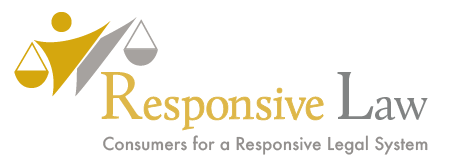Florida Considers Restrictive Amendments to Rules Regulating Lawyer Referral Services
10/14/2016
Written by Lynn Bechtol
The Florida Supreme Court is considering amendments to its rule regulating lawyer referral services which could drastically restrict consumer access to justice.
Lawyer referral services collect legal information and resources in a single forum and play a vital role in making community members aware of the legal aspects of their problems. These agencies describe lawyers’ qualifications and experience, provide cost comparisons between lawyers offering similar services, and guide consumers toward lawyers specializing in specific services, such as assistance with consumer debt or child custody issues. Such recommendations are invaluable to ordinary consumers, who are generally inexperienced with the legal system and have considerable difficulty determining which lawyer will best serve their needs.
Despite a continually growing need, particularly among first time consumers, such services remain out of reach for most low and middle income individuals, organizations, and families. Many individuals fail to recognize the legal components of their problems. For example, a tenant facing eviction may view her issue as purely financial even though she has a legal right to challenge the eviction. Even when a consumer recognizes that she has a legal need, she may be unable to determine what sort of aid is needed and how it can be located. A 2013 study found that two-thirds of random adults in a mid-sized American city experienced at least one significant legal issue within an 18-month period, but only one-fifth of those sought formal help. Consumers often find the legal system confusing and inefficient. They fail to seek formal assistance because they believe such help would be ineffective, too difficult to locate, or too costly.
In response to the increased availability of online referral services, the Florida Supreme Court asked the Florida Bar to propose amendments to Florida Bar Rule 4-7.22, regulating lawyer referral services. If approved by the Florida Supreme Court, the Bar’s proposed amendments would merge referral services into a larger category of “qualifying providers,” including not only traditional referral services but also directories, online matching systems, grouped or pooled advertising, and tips or lead systems. Underlying the amendments is a concern that such services, particularly when operated for profit, encourage agencies to favor certain attorneys and firms over the consumers that the services are meant to aid.
Responsive Law opposes this change because it will make legal services less available to consumers. This definition will fail to address the consumer harms feared by theBar, and it will also significantly and negatively affect such agencies’ ability to provide high-quality, affordable legal services to consumers. Responsive Law submitted an official comment encouraging the Florida Supreme Court to reject the expanded definition the amended rules propose.
If you would like to read Responsive Law’s full comment to the Florida Supreme Court, click here.
Lynn Bechtol is a Responsive Law Legal Fellow.
